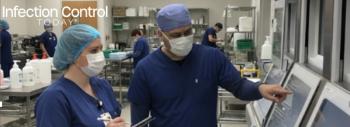
Infection Preventionists Are Critical Responders to Wuhan Coronavirus Outbreak
Responding to infectious disease outbreaks is not a novel part of infection prevention and control (IPC) work. In fact, many infection preventionists (IPs) are epidemiologists, trained in outbreak response. While IPs normally deal with outbreaks of drug-resistant organisms or norovirus, often emerging and novel infectious diseases occur that challenge our day-to-day activities.
The outbreak of the novel coronavirus, 2019-nCoV, is one that brings about a set of unusual challenges and stressors. The outbreak has reached over
For most IPC efforts, screening is the first line of catching potential PUIs to ensure identification, isolation, and informing occur. Most of our efforts are built on travel screening and symptoms to help capture patients during the triage process and rapidly isolate until we can further evaluate them. Recently though, the US Centers for Disease Control and Prevention (CDC) changed their guidance a bit. These changes aren’t much, but equate to moving from focus on Wuhan, to now focus on Hubei Province and mainland China.
Moreover, the clinical features are no longer just fever and/or signs and symptoms of lower respiratory illness, but also those requiring hospitalization. This last piece, in addition to travel to mainland China within 14 days of symptom onset is in relation to the likelihood that those requiring hospitalization are experiencing more severe symptoms and thus, more likely to expose others. Given the likelihood that those with recent travel or concern for exposure will visit healthcare facilities in the absence of symptoms (i.e. the worried well), there has also been suggestion of cohorting these asymptomatic PUIs (those arriving together if in families) if need be in an effort to reduce the strain on healthcare facilities and their negative pressure rooms. Continued communication and education regarding these efforts and the proper communication processes is critical to both ensure there is not additional exposure if the PUI truly has 2019-nCoV, but also so staff can feel best supported by their IPC team and leadership.
Another hot topic at the moment is PPE and the allocation of enough resources. Most hospitals have been preparing for respiratory virus season since the summer of 2019, ensuring enough supplies were on hand should the flu season be severe. As a result of the worried well and having to respond to PUIs though at national and international levels,
Overall, this outbreak will likely involve many rapid news cycles, potential changes to guidance, and other challenges. The good news is that the isolation precautions and efforts are not novel to IPC efforts. These are lessons we know and can rapidly disseminate-now is the time for IPC efforts to really shine.”
Newsletter
Stay prepared and protected with Infection Control Today's newsletter, delivering essential updates, best practices, and expert insights for infection preventionists.




